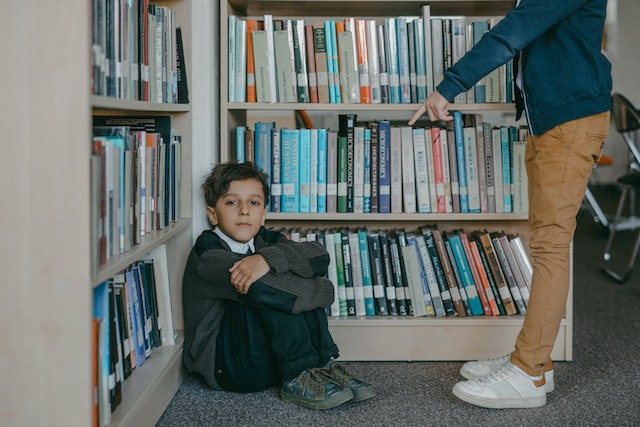We often believe that putting them under stress and pressure will make them stronger. But is it really true?
Does stress and pressure toughen your child or is it harming their mental and emotional health?
Let’s explore this topic in depth.
I. Understanding types of stress
When we think of stress and pressure, our first instinct may be to view them as negative experiences that we should avoid at all costs. However, not all stress is created equal. In fact, some types of stress can actually be beneficial for children’s development, while others can have serious negative effects.
Positive stress
Positive stress is a type of stress that is experienced in short bursts and is considered a normal part of childhood. This type of stress helps children develop coping skills and resilience, and can even be beneficial for brain development. Examples of positive stress include the first day of school, a performance in front of an audience, or a sports game. These experiences may cause temporary discomfort, but with support and encouragement, children are able to overcome them and grow stronger as a result.
Toxic stress
On the other hand, toxic stress is a type of stress that is chronic and severe, and can have serious negative effects on children’s physical and mental health. Toxic stress occurs when children are exposed to ongoing trauma or adversity without adequate support and protection from caring adults. Examples of toxic stress include poverty, abuse, neglect, or witnessing violence. These experiences can cause long-term damage to children’s brains and bodies, and can lead to a range of negative outcomes, including developmental delays, mental health issues, and chronic health problems.
It’s important to note that not all stressors are created equal, and the key difference lies in the level of support and protection that children receive in response to the stress. Positive stress can be a beneficial experience for children, but it’s important for parents and caregivers to provide support and guidance to help children navigate these experiences in a healthy way. On the other hand, toxic stress can have serious negative effects, and it’s important for adults to take steps to protect children from ongoing adversity and provide the support and resources they need to heal and recover.
II. Impact of stress and pressure
Stress and pressure can have both positive and negative effects on children. While a little stress can motivate children to achieve their goals, excessive stress and pressure can have serious consequences on their mental and emotional health.
Positive Effects of Stress and Pressure
A moderate level of stress can help children develop resilience and coping skills. When children are faced with a challenging situation, their brains release hormones like adrenaline and cortisol, which help them stay alert and focused. This can motivate them to work hard and overcome obstacles, leading to a sense of accomplishment and increased self-esteem.
Negative Effects of Stress and Pressure
Excessive stress and pressure can have harmful effects on children. Chronic stress can lead to anxiety, depression, and other mental health issues. Children who are constantly under pressure may develop perfectionistic tendencies, which can lead to fear of failure and self-doubt. They may also experience physical symptoms such as headaches, stomachaches, and fatigue.
Recommended reading: Everything that Is Wrong with Strict Parenting
Recommended reading: Is Your Parenting Style Causing Aggression In Children?
III. What can parents do?
As parents, it is important to strike a balance between providing a supportive environment and challenging children to do their best. Here are some strategies to help children manage stress and pressure:
1. Provide a safe and supportive environment
Children need to feel safe and loved to be able to cope with stress. Encourage them to express their feelings and listen to them without judgment.
2. Teach coping skills
Teach children coping skills such as deep breathing, meditation, and visualization to help them manage stress and anxiety.
3. Encourage physical activity
Physical activity can help children release stress and feel better. Encourage them to engage in activities they enjoy, such as sports, dance, or yoga.
4. Set realistic expectations
Set realistic expectations for your children and encourage them to do their best without putting undue pressure on them.
Recommended reading: Setting Expectations For Kids the Right Way
5. Celebrate success
Celebrate your child’s successes, no matter how small. This can help build their self-esteem and encourage them to continue working hard.
Conclusion: Does stress and pressure toughen your child?
In conclusion, the statement – stress and pressure toughen your child – is not always true. While a little stress and pressure can be beneficial for children, excessive stress and pressure can harm their mental and emotional health. As parents, it is important to provide a supportive environment and teach children coping skills to help them manage stress and pressure. Encouraging physical activity and celebrating successes can also help build their resilience and self-esteem. Ultimately, it is important to find a balance between challenging children to do their best and ensuring their mental and emotional well-being.




